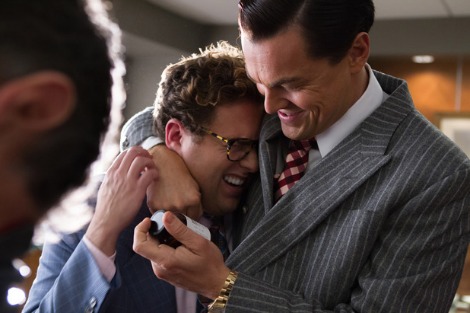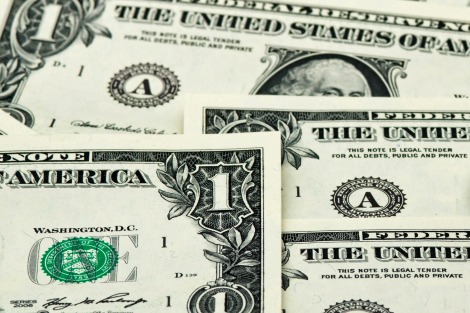Keywords: Global Financial Crisis
There are more than 200 results, only the first 200 are displayed here.
-

ARTS AND CULTURE
- Tim Kroenert
- 23 January 2014
5 Comments
If ultimately Belfort's comeuppance for his innumerable evils is modest, and his lessons remain unlearned, it is deeply and frighteningly ironic, in a way that has parallels in the real world. The global financial crisis resulted precisely from the kind of unbridled amorality that the characters in The Wolf of Wall Street gleefully embrace. Money is their morality. Lives are left battered and bruised, but the Wall Street party keeps raging on.
READ MORE 
-

AUSTRALIA
- John Falzon
- 16 January 2014
1 Comment
Kevin Rudd says we need a 'new politics' or a 'new way'. Tony Abbott says we'll only get a new way by electing a new government. What is missing in both statements is the recognition that what we actually need is a new kind of economic democracy: a reconfiguration of our economic prioritising away from individualism towards the common good, and towards the participation of all rather than the exclusion of many.
READ MORE 
-

INTERNATIONAL
- Duncan MacLaren
- 10 January 2014
While any man's death diminishes me because I am involved in mankind', I must admit to pouring a glass of good malt at the news of Thatcher's passing. The Southern English may laud her as the greatest prime minister after Churchill but for us Scots she was a hate figure who in the last days of her premiership scarcely dared to cross the border for fear of being assassinated.
READ MORE 
-

AUSTRALIA
- Ray Cassin
- 13 December 2013
33 Comments
The immediate responsibility for this looming economic disaster rests with the Abbott Government, and not merely because of its use of a bullying speech in Parliament by the Treasurer, Joe Hockey, to goad Holden into announcing a decision that its masters in Detroit had probably already taken. In the longer term, this should be seen as a bipartisan disaster. What happened this week was the culmination of a process that began under Hawke.
READ MORE
-

AUSTRALIA
- Tony Kevin
- 08 November 2013
23 Comments
The Coalition's impending destruction of the Australian car industry by calculated public stalling of decisions on government assistance is shaping up as its most disastrous high-visibility policy blunder. This industry — but none other — is to be wilfully abandoned as a victim of rigid free-market economic ideologies. It does not make sense, in economic, social or national security terms. This is Australia's version of US Tea Party budget brinkmanship.
READ MORE 
-

AUSTRALIA
- Frank Brennan
- 02 November 2013
7 Comments
'There have been innumerable post-mortems and words of advice as to how the party with new structures, election rules, and policies can pick itself up, dust off, and win the next election. Sadly some of those post-mortems have come with more coatings of spite and loathing. It is no part of my role in the public square as a Catholic priest to offer such advice.' Frank Brennan's address to the Bathurst Panthers Club, 2 November 2013.
READ MORE
-

ECONOMICS
- David James
- 04 October 2013
1 Comment
America is fond of claiming exceptionalism, which is usually little more than an indication of its attitude to moral accountability. But in one area America definitely is exceptional: the global currency markets. There is no risk of the market for American dollars drying up, which means that a default by the American government is, while significant, not especially relevant to what happens with the global trade in US dollars.
READ MORE 
-

AUSTRALIA
- Ray Cassin
- 09 September 2013
20 Comments
The Economist's leader writer and other international international observers including Joseph Stiglitz judged that, by most objective measures, Labor's achievements should be preferred to the Coalition's offerings. The big picture went unacknowledged in Australia's dismal, dispiriting election campaign.
READ MORE 
-

AUSTRALIA
- Greg Foyster
- 02 September 2013
19 Comments
Throughout the election campaign, both major parties have pledged to address 'cost of living' pressures. But a quick comparison with the economies of other industrialised nations confirms that Australians have nothing to complain about. If prices rise by 5 per cent but incomes rise by 10 per cent, households are better off, even if the cost of a petrol reaches a new pinnacle.
READ MORE 
-

AUSTRALIA
- John Falzon
- 19 August 2013
24 Comments
Kevin Rudd says we need a 'new politics' or a 'new way'. Tony Abbott says we'll only get a new way by electing a new government. What is missing in both statements is the recognition that what we actually need is a new kind of economic democracy: a reconfiguration of our economic prioritising away from individualism towards the common good, and towards the participation of all rather than the exclusion of many.
READ MORE 
-

ECONOMICS
- David James
- 13 August 2013
3 Comments
As the China boom fades Australia is experiencing a delayed version of the GFC, without the banking crisis. Until now we've been reasonably well served by both sides of politics, in terms of macro-economic strategy. Now we require a way of dealing with more mundane economic issues like productivity and efficiency. Neither side has many good ideas about how to achieve the required structural shifts.
READ MORE 
-

AUSTRALIA
Can Rudd fare any better? He is a formidable campaigner and consistently rates well above either Abbott or Gillard when poll respondents are asked who is their preferred prime minister. What is more, Labor has a success story to tell about the economy, which the Government thus far has failed to sell. Rudd tells this story without illusions.
READ MORE 